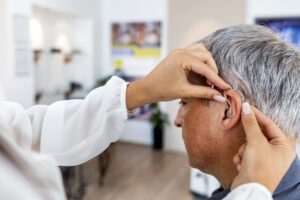Sleep medicine is a branch of medicine that deals with the diagnosis and treatment of sleep disorders. Sleep disorders are conditions that affect the ability to sleep well due to factors related to time of sleep, length of sleep, or quality of sleep. They can be caused by physical, mental, or medical conditions or factors….
Blog
An Allergist’s Tips For Reducing Your Exposure to Allergy Triggers
7 Steps to Treat Allergic Skin Symptoms
Skin allergies are one of the most common skin conditions, occurring when your immune system overreacts to a harmless substance called an allergen. Your skin’s response to such an otherwise harmless substance is called a skin allergic reaction. Skin allergic reaction results in symptoms like itching, redness, swelling, skin flaking, skin cracking, and raised bumps….
Health Tips for People with Allergies
Our immune system protects us from harmful foreign agents like viruses, bacteria, etc., by producing antibodies that kill these foreign substances. However, in people with allergies, the immune system produces antibodies in response to foreign substances that aren’t even harmful. This response of our immune system to harmless substances is called an allergic reaction. Most…
Some Common Signs of Hearing Loss and How You Can Prevent It
According to an estimate, approximately 1 in 10 people in the United States have some degree of hearing loss, making it one of the most common sensory processing disorders. While hearing loss is common in seniors, it can affect all ages, genders, ethnicities, and races. In children, it is one of the most common congenital…
Signs Your Child May Need Adenoidectomy Surgery
Adenoidectomy is the surgical removal of the adenoids – glands located above the mouth’s roof, behind the nose. In children, adenoids are an important part of the child’s immune system and protect against germs that may enter the body through the nose or mouth. Typically, these glands shrink and disappear by the teenage years. However,…
Adenoidectomy Surgery: What It Really Means
Adenoidectomy, along with tonsillectomy, is among the most commonly performed ENT surgical procedures in the United States. Nonetheless, for many people with no medical background, the term “adenoidectomy” can seem rather unfamiliar, leaving them wondering what it actually means and when they might need it. The information we’ve provided below can help you get a…
Why You Should Get Your Hearing Tested Annually
Hearing loss is not high on the list of things people think about regarding their health. We tend to take our ability to hear for granted until we realize that we have hearing loss. However, with a simple hearing test, you can learn about your ears’ health, how to protect your hearing and prevent hearing…
Better Hearing Solutions with Cochlear Implants
It is estimated that over 12 million Americans in the United States have severe hearing loss, which cannot be helped by hearing aids. Hearing is critical to navigating your surroundings, hearing potential dangers and important sounds, and communicating. What can improve their hearing ability if hearing aids are not useful for those with profound hearing…
How an Allergist Helps You Cope with Allergies
An allergy is an overreaction of the immune system to typically harmless substances. These substances are called allergens and can include environmental substances, such as pollen, pet dander, dust mites, mold or food such as dairy, gluten, and peanuts, and medication, including penicillin and some antibiotics. When someone with allergies comes into contact with an…












